Printable Excavation Safety Material Excavation work is hazardous This guide provides information on the potential hazards involved in excavation work so that workers and employers can work together to create a safe injury and fatality free worksite This item may be ordered free of charge to place your order please email information safeworkmanitoba ca with the name of the
Thereby making all excavation requirements applicable to trenches A single soil classification system was generated by the National Bureau of Standards known in the OSHA Standard as Appendix A and utilized in the sloping and shoring appendices as well as adopted by manufacturers of excavation safety equipment and excavation design 2 Materials adjacent to excavation 3 Work done around excavations 4 Water 5 Weather c Shielding i Shields are engineered structures that take into account the trenches many hazards and minimizes the hazards of material falling into the excavation and injuring the occupants inside Some of the factors to consider with shields
Printable Excavation Safety Material
 Printable Excavation Safety Material
Printable Excavation Safety Material
https://i.pinimg.com/originals/05/f3/77/05f3775f0d508b8e0c813c8e594a960b.jpg
That ensures the safety of workers Excavations must be backfilled as soon as work is completed YES NO N A Excavation Concrete Breaking Drilling Have the supervisors and workers been trained in excavation safety regulations and procedures Have buildings utility poles trees and any other surface encumbrances or
Templates are pre-designed documents or files that can be used for numerous purposes. They can conserve time and effort by providing a ready-made format and layout for producing various kinds of material. Templates can be utilized for personal or expert tasks, such as resumes, invitations, leaflets, newsletters, reports, discussions, and more.
Printable Excavation Safety Material
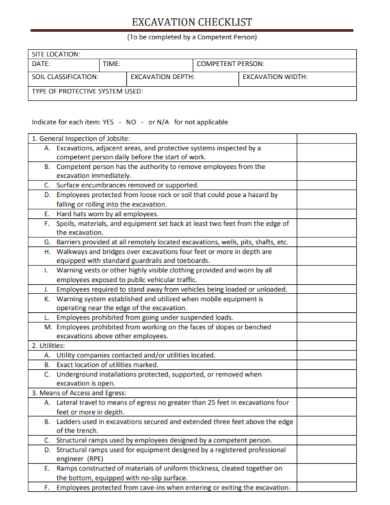
Osha Excavation Checklist Form Fill Out And Sign Printable Pdf Gambaran

Vinyl Exclusive Cautionary Signage For Signages Board Thickness 0 03
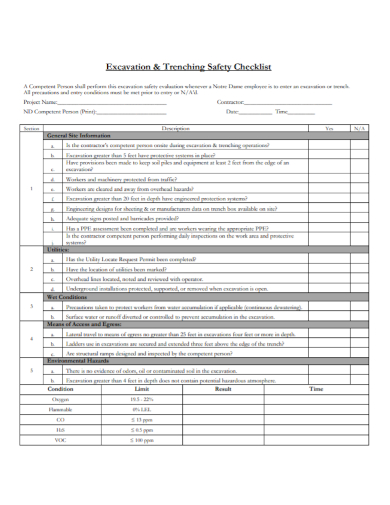
FREE 10 Excavation Checklist Samples Safety Inspection Daily

Excavation Permit To Work Ubicaciondepersonas cdmx gob mx
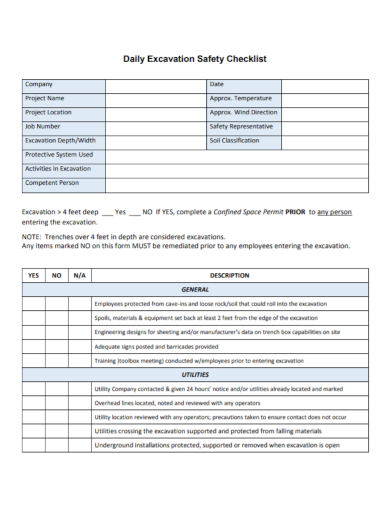
FREE 10 Excavation Checklist Samples Safety Inspection Daily
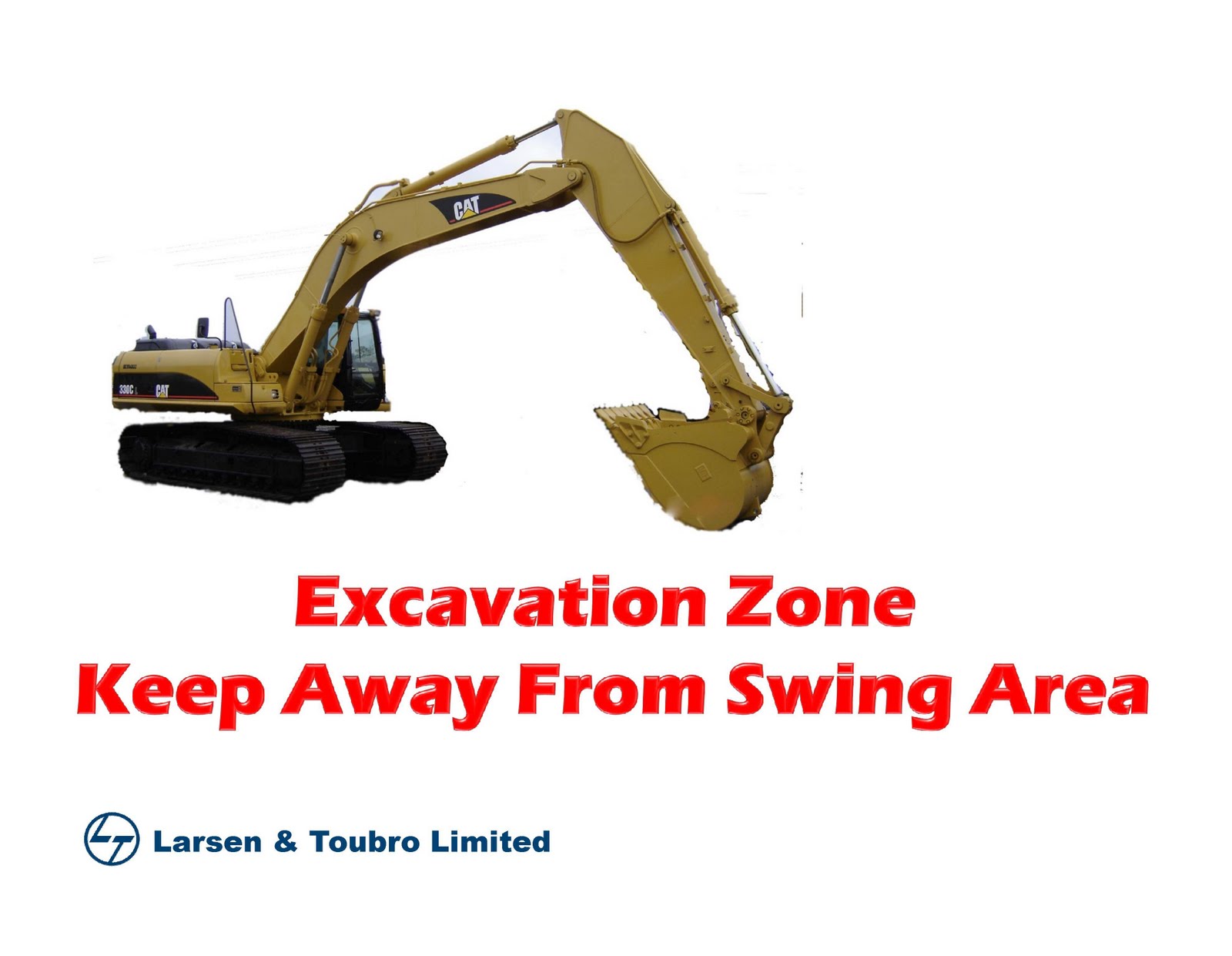
Safety Professionals Excavation Safety Posters

https://norsemanhdd.ca/uploads/zmztcGA2/NorsemanGroundDi…
Cohesive with an unconfined compressive strength between 0 5 tsf 48kPa and 2 5 tsf 144 kPa Examples of type B soils include granular co hesionless soils angular gravel similar to crushed rock silt silty loam sandy loam and in
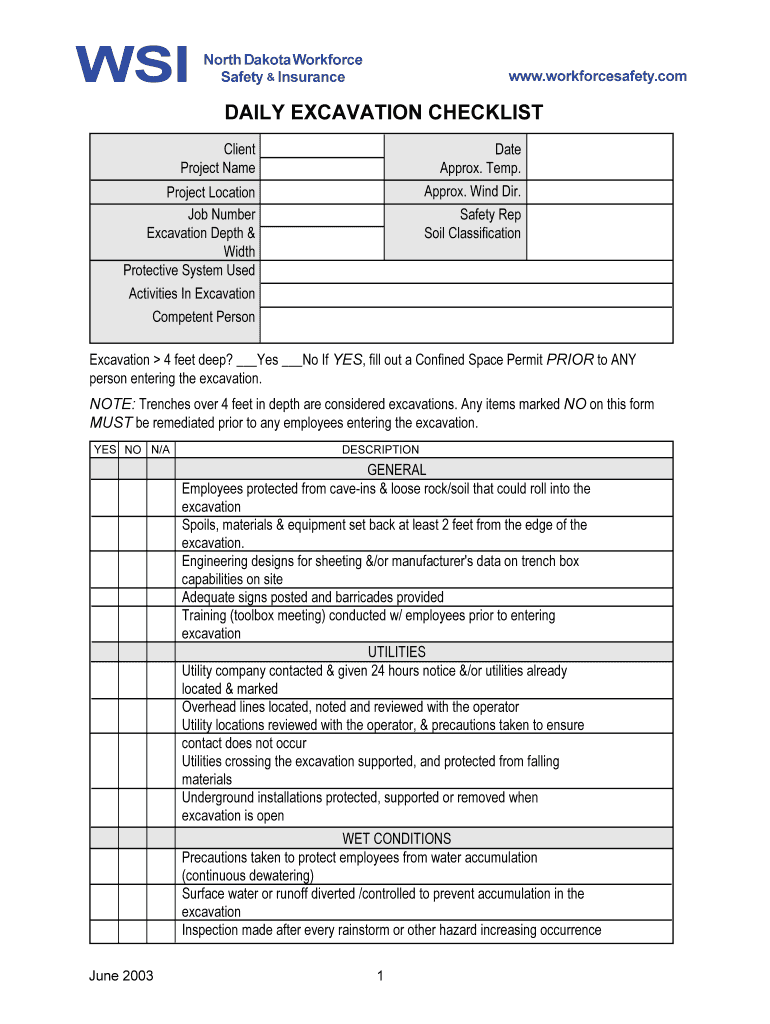
https://safetyculture.com/topics/excavation-safety
Excavation Safety is a standardized set of safety precautions for trenching and excavation to eliminate hazards and control risks in compliance with regulations It is also referred to as Trenching and Excavation Safety as often cited by the U S Occupational Safety and Health Administration OSHA What are OSHA Excavation

https://www.osha.gov/sites/default/files/publications/osha2226.…
OSHA defines an excavation as any man made cut cavity trench or depression in the Earth s surface formed by earth removal A trench is defined as a narrow excavation in relation to its length made below the surface of the ground
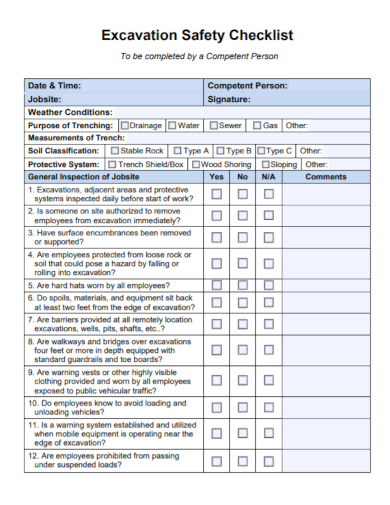
https://www.ontario.ca/page/excavation-hazards-construction-projects
Call 8 30 a m to 5 p m Monday to Friday for general inquiries about workplace health and safety Always call 911 in an emergency Published March 11 2022 Learn about legal requirements and precautions to address hazards involving excavations on
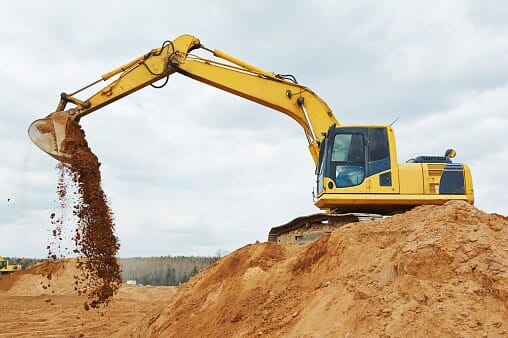
https://www.nsc.org/pages/excavation-safety-resources
Excavation Safety Resources Here you will find vital safety information for workers in the excavation field In response to a recent spike in trenching fatalities the U S Department of Labor Occupational Safety and Health Administration has updated the National Emphasis Program on preventing trenching and excavation collapses
The most common hazards that exist in excavation work include cave ins or excavation collapses excavated material falling into the excavation or affecting wall stability equipment used in or near an excavation Step 1 Hazard Identification To minimize safety hazards at an excavation site the inspector must identify hazards that occur in the primary entrance and loading unloading areas as well as during the actual excavation work The most common sources of hazards during excavation operations include Falls falling loads crushing
1 Study the Soil Layers Conduct a proper study to determine what lies beneath the soil where excavation is planned For example modern pavements have complex pipelines and cables beneath them Properly planned excavation is essential in such areas